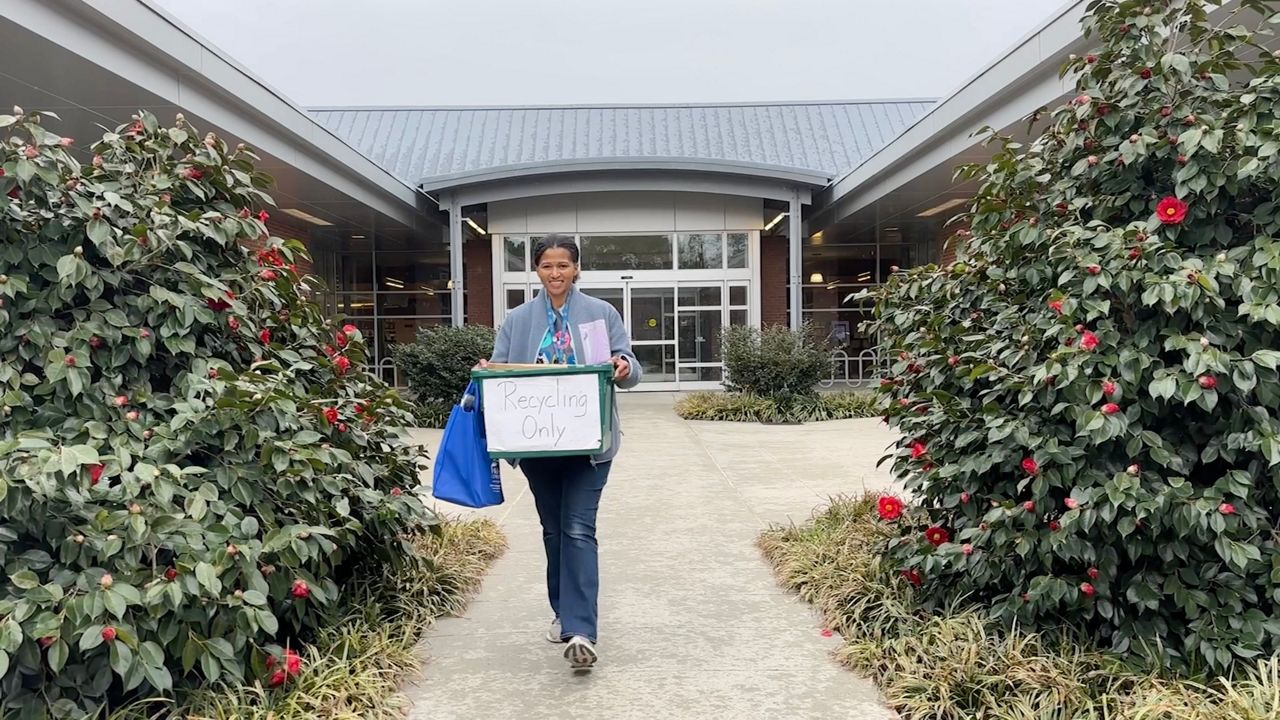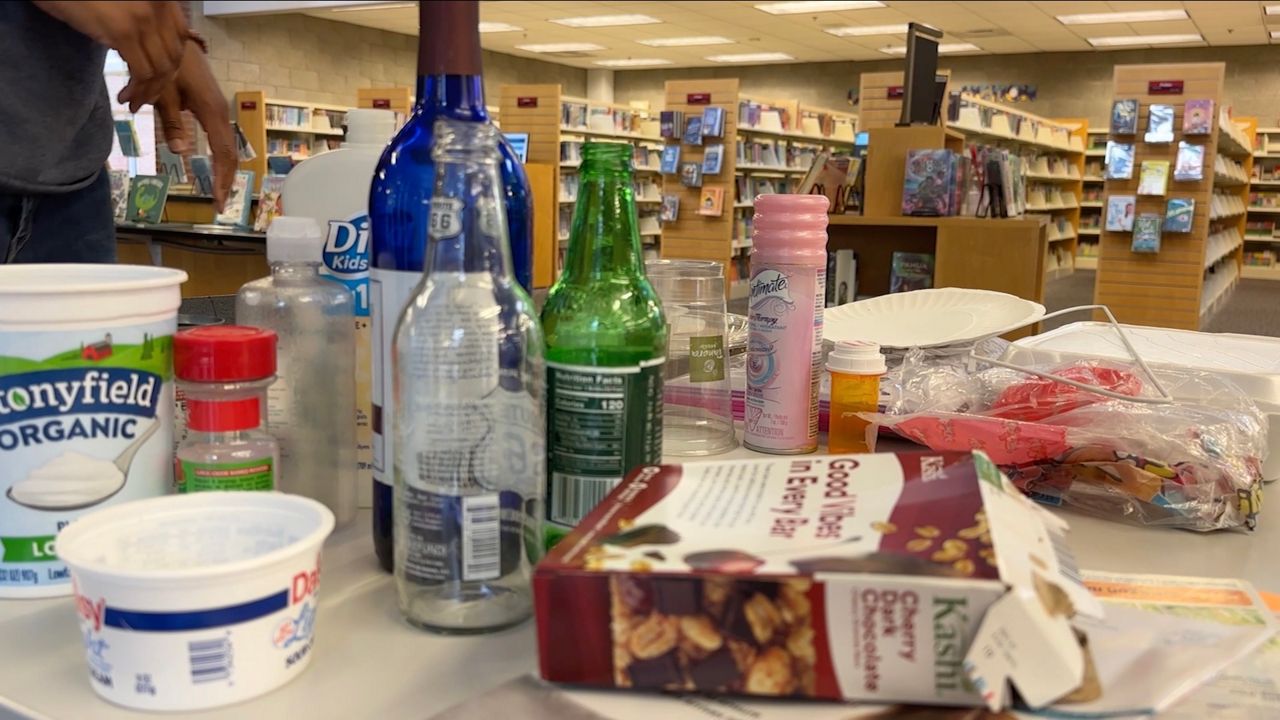CARY, N.C. — What can you recycle? It’s a question that’s often asked but not so easily answered.
Recycling contamination is a problem all across the state
In Wake County, the county has to pay a fee if the contamination rate is above 10%
The current contamination rate is more than 13%, up from 7% in 2020
Many people don’t realize items like shredded paper, foam, plastic bags and hangers can’t be recycled
Recycling contamination is a problem in North Carolina, and it stems from people not knowing what can be reused. Wake County Solid Waste is trying to make the answer more clear. During the month of March, they hosted a series of recycling education programs to help people reduce waste properly.
Bianca Howard first got involved at Wake County Solid Waste because she needed a job in Raleigh.
“I've stayed so long because it's never boring,” Howard said. “I've never been bored a day in 20 years.”
But she says it’s also something everyone can relate to.
“Everyone makes trash,” Howard said. “We all buy things and use things that we eventually don't have a use for. And it's really cool that Wake County has so many ways for people to learn about where their waste goes and how they can have an impact.”

Howard says recycling isn’t intuitive, and it’s her job as a recycling educator to help people know what to do. She says the best way to tell whether a plastic can be recycled is to look for the shape. As a general rule, if it’s a bottle, tub, jug or jar, it can be recycled. But if it’s any other shape like a lid, plastic box or tray, it can’t be recycled.
“We help people hopefully understand what to recycle so that they don't waste their time separating out things that are just going to wind up in the landfill,” Howard said.
Wake County works with a private company that sorts recycling and ships it off to be made into new things. The company gives them a contamination report two times a year. If there is more than 10% contamination, the county has to pay a fee.
“The contamination rate is a percentage of what we bring in that can't be recycled,” Howard said. “So sometimes that's things that should be recycled somewhere else, like plastic film or plastic bags. Sometimes it's things that can't be recycled at all, like plastic lids and trays. Other times it's things that are actually hazardous, like when batteries go into recycling instead of being recycled separately."

In 2020, Wake County Solid Waste had a contamination rate of 7%. The current rate in Wake County is 13.8%. Howard says this increase is because the amount of plastic we see in stores is growing, and the population in our state, and specifically Wake County, is growing too.
She says counties across the state are sending out stickers, magnets and lists or putting out apps to help people recycle properly. People can reach out to their local solid waste and recycling facilities to see if there are any education programs near them.





